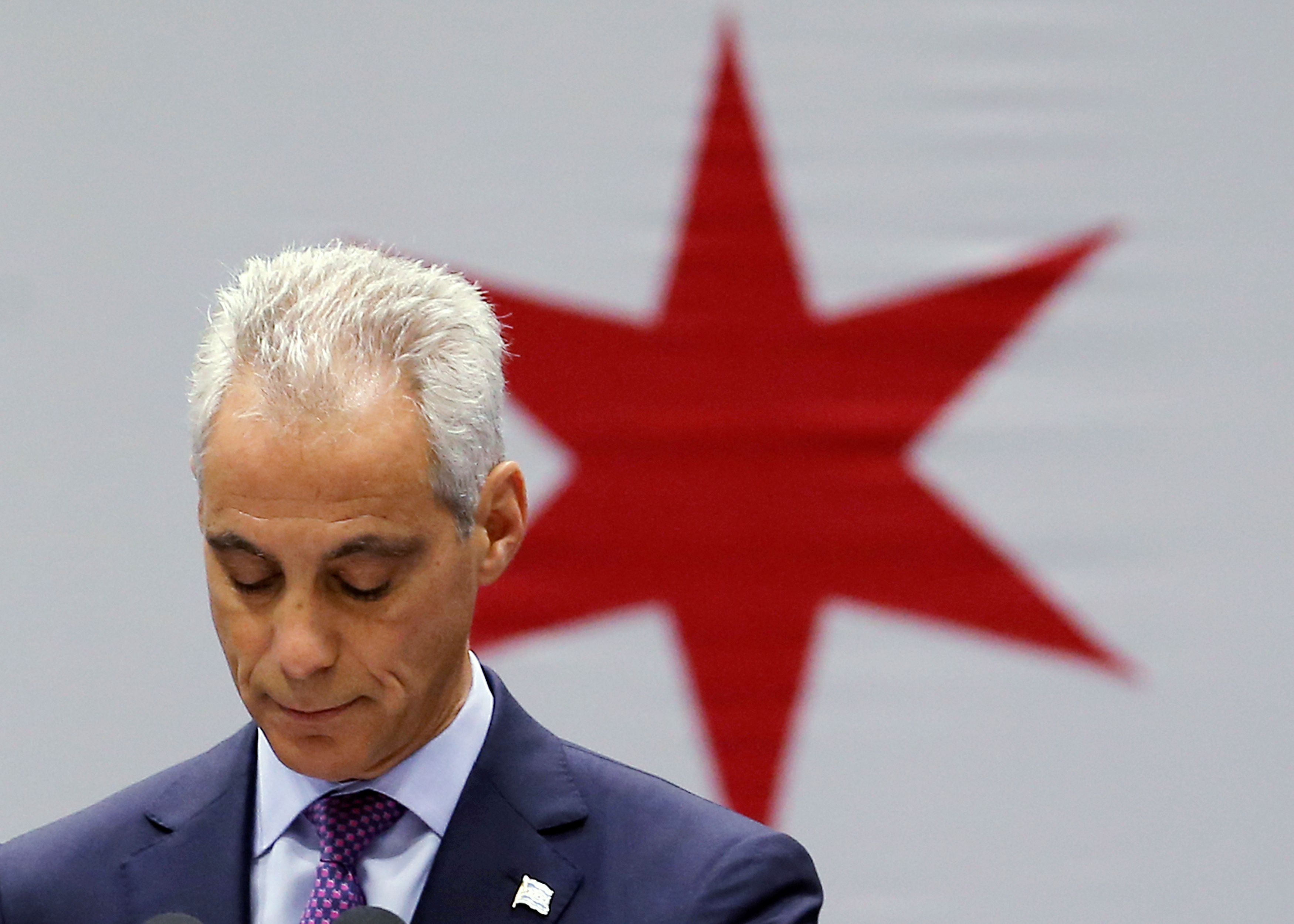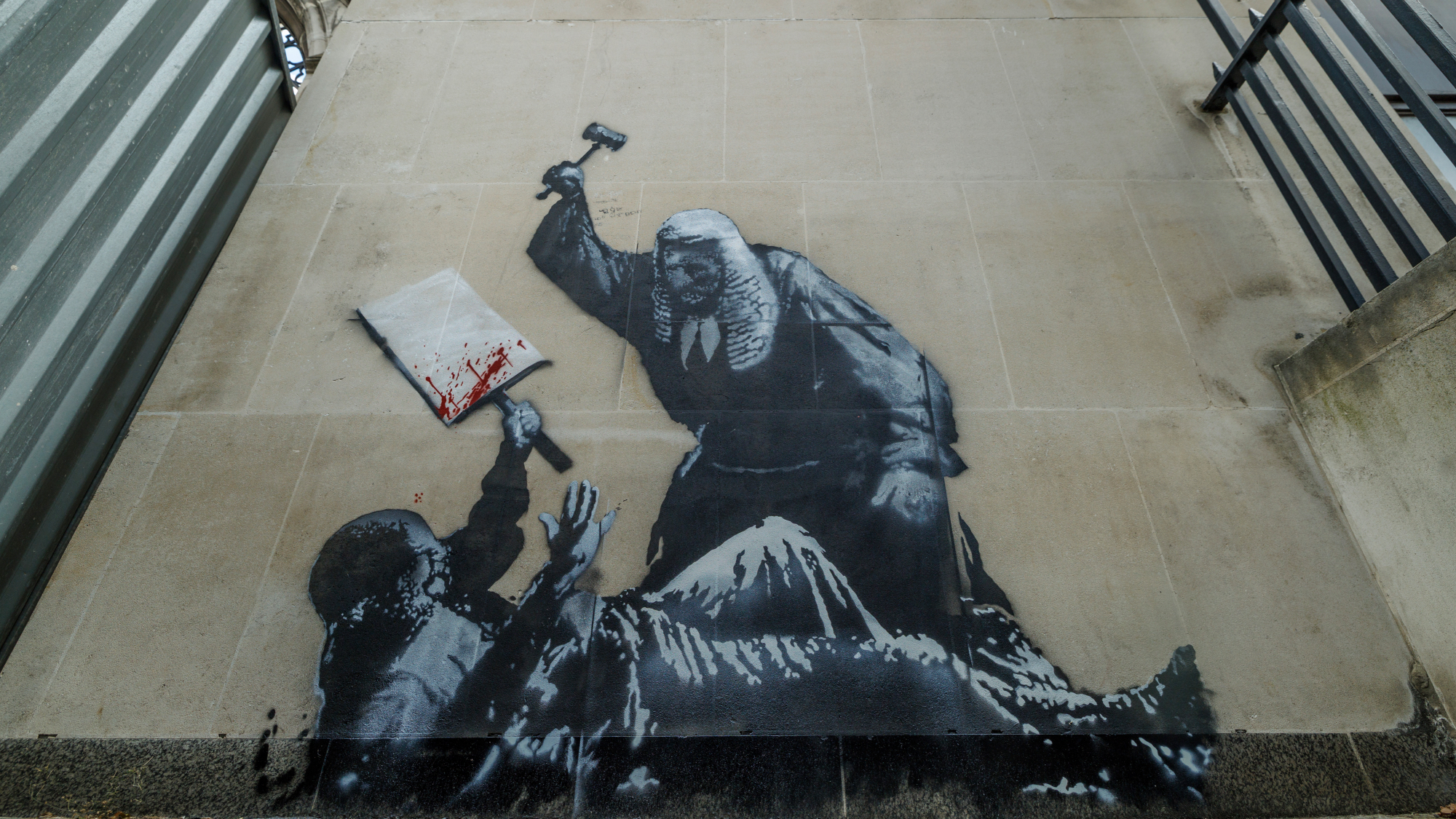Rahm Emanuel's cruel and appalling public education plan
Powerless 18-year-olds don't need more hurdles to high school graduation


America's elites are in total agreement: A high school education no longer cuts it in our modern economy. We've got to do better, they say. College for everyone!
As such, Chicago Mayor Rahm Emanuel has a plan to give high schoolers a swift kick in the pants.
Emanuel wants to make having some post-high school plan a requirement for graduating in Chicago's public school system. An array of options would meet the requirement: A college acceptance letter is obviously the big one. But acceptance into the military would also count, as would a job training program, an apprenticeship program, a "gap year" program with travel or volunteer work or research, or a job offer.
The Week
Escape your echo chamber. Get the facts behind the news, plus analysis from multiple perspectives.

Sign up for The Week's Free Newsletters
From our morning news briefing to a weekly Good News Newsletter, get the best of The Week delivered directly to your inbox.
From our morning news briefing to a weekly Good News Newsletter, get the best of The Week delivered directly to your inbox.
"We all need to change how we think about what it means to be a high school graduate — a diploma alone isn't enough anymore," said Janice Jackson, the chief education officer of the Chicago Public School system.
"Just like you do with your children, college, post-high school, that is what's expected," Emanuel added. "If you change expectations, it's not hard for kids to adapt."
The very spirit of this idea is appalling.
As some of the most powerless people in the American labor market, high school graduates need fewer hoops to jump through, not more. How on Earth are these requirements going to help them?
A free daily email with the biggest news stories of the day – and the best features from TheWeek.com
Now, Chicago does have some quirks worth pointing out. Admission to Chicago's community colleges is already guaranteed to every graduate of the city's public high school system. Illinois law also requires all community colleges in the state to admit qualified students — assuming that space is available. And Chicago offers a program that effectively makes community college free for any student who gets a B grade average or better in high school, and who meets a few additional requirements. So ideally, Chicago's community college system comes close to operating as a fallback option that every high schooler could rely on to meet the new requirements.
In practice, though, getting enough resources to the community college system so that it can actually function as such a fallback will be nearly impossible. Emanuel has pushed city budgets that cut funding to public education in Chicago. The Illinois state budget has been slashing education spending as well. Deny sufficient resources to community colleges, and their tuition could become too high or they might not have enough space for everyone after all. Deny resources to K-12 public education, and fewer students will graduate with that B average.
And why is it that a post-high school education is now "what's expected," anyway? The standard answer is that advancing technology has made skills more important. But this ignores the reality that the economy has chronically failed to produce enough jobs for everyone for decades now. And after the Great Recession, the problem became vastly more acute for young people just entering the job market.
Think about the broader dynamics of our economy: When workers are perpetually competing over a too-small supply of jobs, employers have all the power and can be picky. They can demand a college diploma for everything. They can avoid hiring people who will need to learn on the job. They can stop investing in training programs.
Let's also remember that there are innumerable honorable middle-class jobs that require not a moment in a college classroom.
Interestingly, it's not clear that Emanuel's plan will even pass legal muster. Illinois state law allows school boards to place additional requirements on graduation. But Emanuel's idea is uniquely problematic in that it makes graduation conditional on acceptance by some third party like an employer, a college, or the military. As Angus Johnston, a City University of New York historian of student activism, observed: "It's not a requirement that you look for a job, or apply to college. It's a requirement that some gatekeeper finds you worthy."
At any rate, the Chicago Board of Education — which Emanuel himself appoints — will take up the mayor's proposal next month.
They should remember that high school graduates are already effectively being thrown into an economic cage match where there are far too few jobs and resources to go around. Many graduates must lose out in this scramble by sheer mathematical necessity. In that context, the idea that we need to "change expectations" for high school students, or "change how we think" about high school, is cruel and perverse.
Jeff Spross was the economics and business correspondent at TheWeek.com. He was previously a reporter at ThinkProgress.
-
 Bari Weiss’ ‘60 Minutes’ scandal is about more than one report
Bari Weiss’ ‘60 Minutes’ scandal is about more than one reportIN THE SPOTLIGHT By blocking an approved segment on a controversial prison holding US deportees in El Salvador, the editor-in-chief of CBS News has become the main story
-
 Has Zohran Mamdani shown the Democrats how to win again?
Has Zohran Mamdani shown the Democrats how to win again?Today’s Big Question New York City mayoral election touted as victory for left-wing populists but moderate centrist wins elsewhere present more complex path for Democratic Party
-
 Millions turn out for anti-Trump ‘No Kings’ rallies
Millions turn out for anti-Trump ‘No Kings’ ralliesSpeed Read An estimated 7 million people participated, 2 million more than at the first ‘No Kings’ protest in June
-
 Ghislaine Maxwell: angling for a Trump pardon
Ghislaine Maxwell: angling for a Trump pardonTalking Point Convicted sex trafficker's testimony could shed new light on president's links to Jeffrey Epstein
-
 The last words and final moments of 40 presidents
The last words and final moments of 40 presidentsThe Explainer Some are eloquent quotes worthy of the holders of the highest office in the nation, and others... aren't
-
 The JFK files: the truth at last?
The JFK files: the truth at last?In The Spotlight More than 64,000 previously classified documents relating the 1963 assassination of John F. Kennedy have been released by the Trump administration
-
 'Seriously, not literally': how should the world take Donald Trump?
'Seriously, not literally': how should the world take Donald Trump?Today's big question White House rhetoric and reality look likely to become increasingly blurred
-
 Will Trump's 'madman' strategy pay off?
Will Trump's 'madman' strategy pay off?Today's Big Question Incoming US president likes to seem unpredictable but, this time round, world leaders could be wise to his playbook



